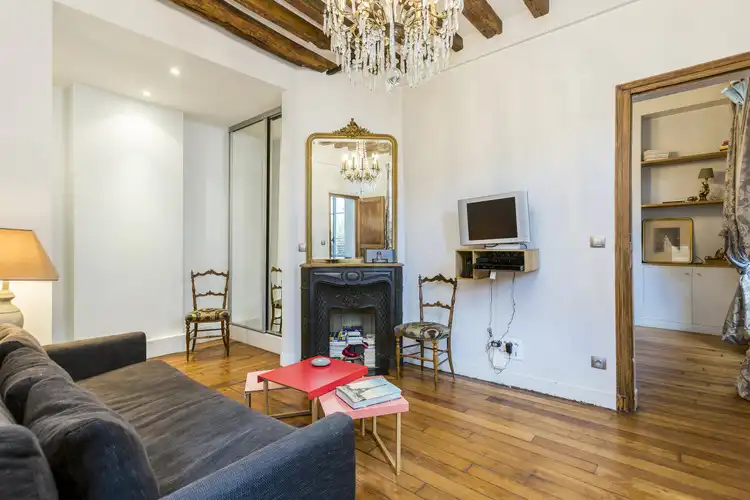Outlook for Commercial Real Estate in Paris Looks Strong Through 2012

The last ten years have seen tremendous market growth in Paris, both in commercial and residential real estate. At the nadir of the market turmoil in 2008-2009, the greatest impact on Paris real estate was the wait-and-see attitude that many investors took, hoping that prices would decline substantially from the level at that time. In Paris, that didn’t happen: the dearth of opportunities created a rush on available properties and, after a slight decline in prices in early 2009, the market recharged with its earlier growth and 2010 saw residential real estate prices soar by 15-20% in every arrondissement in Paris.
As such, there is no real slowdown, and no real revival, in Paris. There have been small dips followed by substantial growth; 2012 looks less promising to many, but that’s been the prevailing attitude for several years. What remains true is that there is very little property available in Paris, and consistently high demand.

Investment in retail real estate in Paris was slower in 2011 after two excellent years in 2009 and 2010, in large part because supply was sold off in those years. But retail assets on Paris’ high streets (Champs Elysee, rue Saint Honoré, rue de Rivoli) are still highly sought after: Paris remains the most visited city in the world and returns for luxury goods and properties remain resistant to economic downturn. Premier addresses in the city are hard to come by: the Tiffany jewelers boutique on the prestigious rue de la Paix (at 30+ million euros) is expensive, but will certainly attract a number of interested buyers because it is a very, very rare product these days.
With regard to rents: on the best streets in the capital rents are stable or rose just slightly in the last two years. This stability despite other economic turmoil is the result of the scarcity of highly desirable space, made worse by the strong demand from international personal goods retailers, a number of which opened new or flagship stores in 2011 at some of the best addresses in the city (Abercrombie & Fitch, Banana Republic and Marks & Spencer on Avenue des Champs-Elysées; Michael Kors on Rue Saint-Honoré).

Well-placed shops on secondary streets are still highly sought-after by retailers looking for a smaller boutique, in the much-loved streets in Saint Germain des Pres or the Marais. Less overrun than Champs Elysees, these neighborhoods still attract loads of tourists but have a more exclusive, less showy feel.
Luxury retail has remained strong in 2012, but mid-range retailers have been hit somewhat by decreased consumer spending, and are concerned about their returns this year. This may ease rents down in some off-prime neighborhoods in 2012.
Rental property returns have remained steady over the last few years about 4.75-5.5%, particularly for prime rental properties, and with the continued scarcity of such highly desirable locations that should continue. As discussed above there is some insecurity in the market that we will see some retail failing in 2012, which will certainly have its impact on rents.
Regarding overseas investors, Paris has always attracted substantial interest from foreign investors, and nothing has changed there. Paris is a market of steady, consistent growth, not a speculative market for quick flips. That is the same for retail as it is for residential or commercial. The knowledgeable Paris investor is looking for an investment with solid but not exponential returns, and capital growth that may fluctuate year to year but averages out to about 10% a year over the last 35 years. For many international investors, the added ingredient is love: a love for the city and the desire to own property here.
Some interesting Paris projects:
 La Samaritaine: Paris’ much-loved department store on the banks of the Seine was bought by LVMH in 2001, and shut down by the city as a fire hazard in 2005. LVMH is renovating now to create a luxury hotel (Le Cheval Blanc), offices, commercial space and social housing. The social housing was a requirement of the city for this redevelopment; expected returns are unknown.
La Samaritaine: Paris’ much-loved department store on the banks of the Seine was bought by LVMH in 2001, and shut down by the city as a fire hazard in 2005. LVMH is renovating now to create a luxury hotel (Le Cheval Blanc), offices, commercial space and social housing. The social housing was a requirement of the city for this redevelopment; expected returns are unknown.
Paris Balard: this neighborhood, on the southern edge of Paris, is unique in the availability of land for development in a city where real estate investment is primarily about buying existing properties. The French Ministry of Defense is building its offices there (sometimes referred to as the “French Pentagon”), and a major office building complex, including retail and restaurant services, is in early phases of construction just nearby.
Contact Paris Property Group to learn more about buying or selling property in Paris.


Social Cookies
Social Cookies are used to enable you to share pages and content you find interesting throughout the website through third-party social networking or other websites (including, potentially for advertising purposes related to social networking).